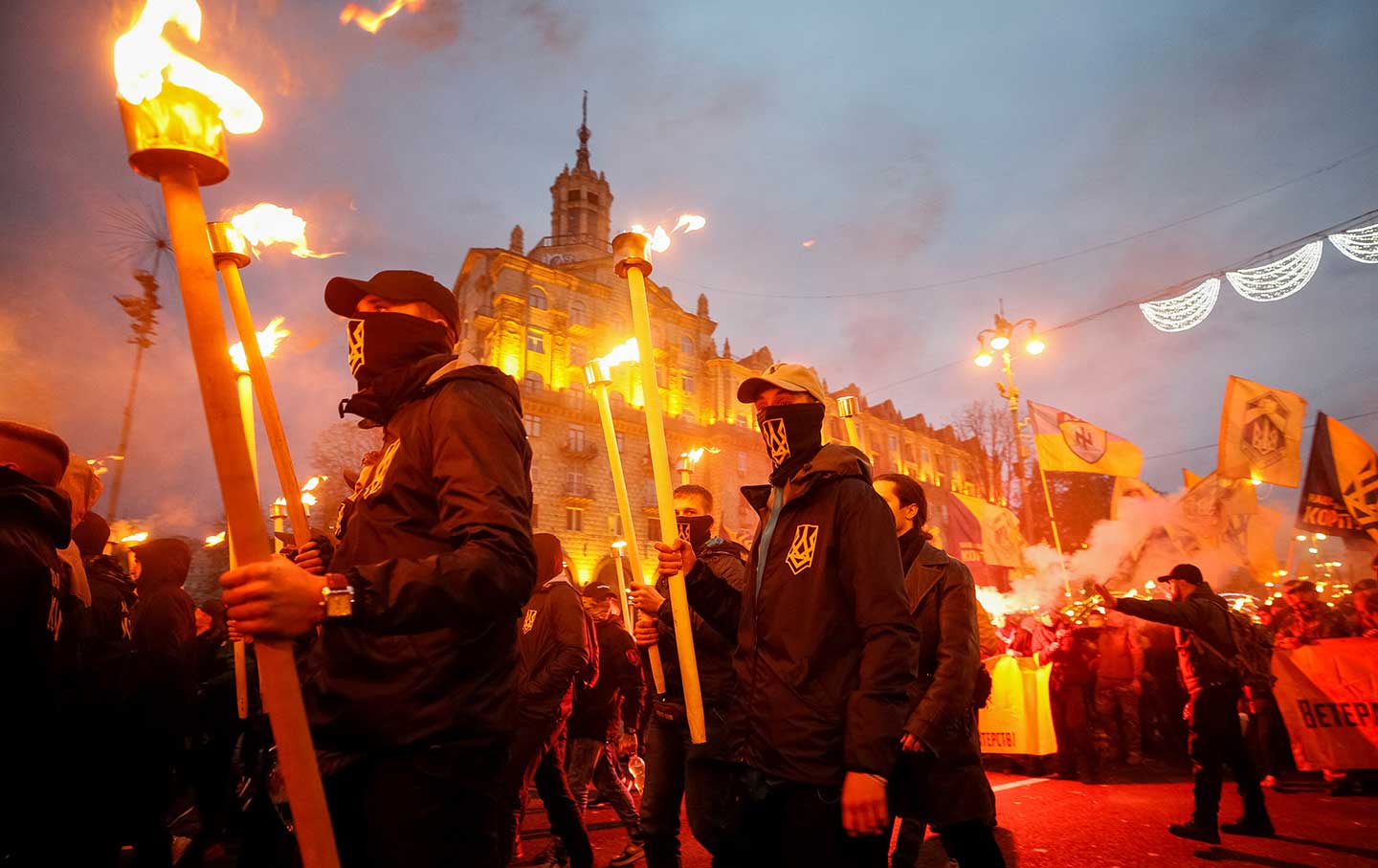Originally posted by SB Shock
View Post
Commentary: Ukraine’s neo-Nazi problem (3/19/18)
As Ukraine’s struggle against Russia and its proxies continues, Kiev must also contend with a growing problem behind the front lines: far-right vigilantes who are willing to use intimidation and even violence to advance their agendas, and who often do so with the tacit approval of law enforcement agencies.
A January 28 demonstration, in Kiev, by 600 members of the so-called “National Militia,” a newly-formed ultranationalist group that vows “to use force to establish order,” illustrates this threat. While the group’s Kiev launch was peaceful, National Militia members in balaclavas stormed a city council meeting in the central Ukrainian town of Cherkasy the following day, skirmishing with deputies and forcing them to pass a new budget.
Many of the National Militia's members come from the Azov movement, one of the 30-odd privately-funded “volunteer battalions” that, in the early days of the war, helped the regular army to defend Ukrainian territory against Russia's separatist proxies. Although Azov uses Nazi-era symbolism and recruits neo-Nazis into its ranks, a recent article in Foreign Affairs downplayed any risks the group might pose, pointing out that, like other volunteer militias, Azov has been “reined in” through its integration into Ukraine’s armed forces. While it’s true that private militias no longer rule the battlefront, it’s the home front that Kiev needs to worry about now.
A January 28 demonstration, in Kiev, by 600 members of the so-called “National Militia,” a newly-formed ultranationalist group that vows “to use force to establish order,” illustrates this threat. While the group’s Kiev launch was peaceful, National Militia members in balaclavas stormed a city council meeting in the central Ukrainian town of Cherkasy the following day, skirmishing with deputies and forcing them to pass a new budget.
Many of the National Militia's members come from the Azov movement, one of the 30-odd privately-funded “volunteer battalions” that, in the early days of the war, helped the regular army to defend Ukrainian territory against Russia's separatist proxies. Although Azov uses Nazi-era symbolism and recruits neo-Nazis into its ranks, a recent article in Foreign Affairs downplayed any risks the group might pose, pointing out that, like other volunteer militias, Azov has been “reined in” through its integration into Ukraine’s armed forces. While it’s true that private militias no longer rule the battlefront, it’s the home front that Kiev needs to worry about now.




Leave a comment: